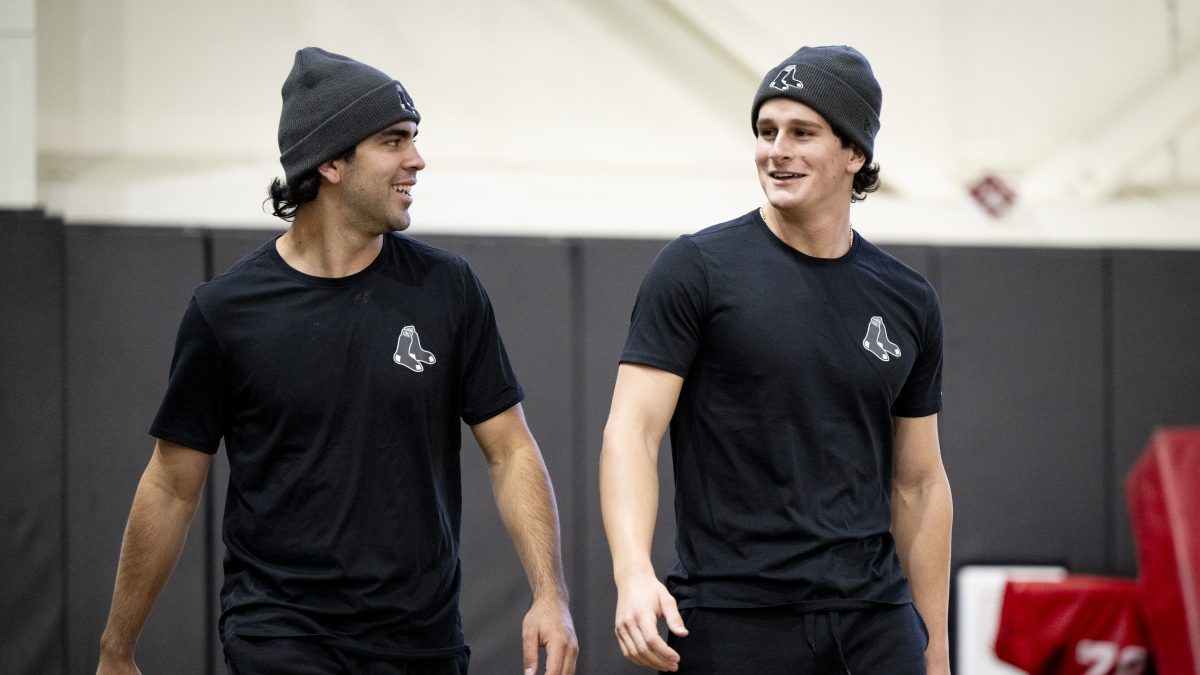
By Sean McAdam
CSNNE.com Red Sox InsiderFollow @sean_mcadam
BOSTON -- For the better part of the last two days, as the Red Sox attempted to explain a season that went horribly, inexplicably wrong, the focus was squarely on Terry Francona's relationship with his players.
On Thursday, approximately 24 hours before he and the Red Sox parted company, Francona spoke of the "challenges'' he sometimes faced communicating with the players and provided some details about a team meeting he was forced to call last month in Toronto.
In the press release -- carefully crafted, revised and issued some seven hours after the fateful meeting between Francona and his superiors -- the ownership troika of John Henry, Larry Lucchino and Tom Werner spoke of the need for an improved "clubhouse culture'' and the need for a new "voice.''
Then, separated by 75 minutes, Francona met with reporters, followed by Werner, Lucchino and general manager Theo Epstein, the four mostly echoed the same thoughts.
Mostly.
But every once in a while, someone would steer, if only ever-so-slightly, off script. The talking points got tossed aside and instead of buzzwords like "reach'' and "voice'' some honesty seeped through.
Sure, you had to be paying very close attention. But if you listened carefully, it was there. And what emerged was the undeniable fact that, beyond whatever problems existed between Francona and his players in the sanctum of the clubhouse, Francona had also lost the support of his bosses, and he, his patience with them.
Boston Red Sox
Time and again, Francona blamed himself for his inability to get his players to be more committed, more loyal to one another, more invested in the game. He chastised himself for his "inability'' to reverse the team's September slide.
He cited the need for responsibility and accountability, the same things he asks of his players. He spoke of the demands of the job, and noted that managing the Red Sox is, in essence, both the best and worst job in baseball.
But occasionally, Francona couldn't help himself. He answered with a simple "No'' when he was asked if the owners had ever offered him the chance to return next season. And, when asked why he didn't ask for another chance to make up for September, Francona went unfiltered.
"To be honest, I'm not sure how much support there was from ownership,'' he said with no hint of rancor. "You've got to be all-in with this job. And I voiced that today. There were some things, going through things here, to make it work, you've got to have everybody together and I was questioning some of that a little bit.''
And there it was. A peek behind the curtain at the real dynamics.
Who knows how ownership and management could have aided Francona in September when both their record and the attitude were on the skids. Perhaps picking up the option years earlier in the year, or last winter, would have sent the not-so-subtle message to players that Francona had their backing, that he would be in charge for several seasons to come.
Instead, Lucchino reacted with great surprise when asked about Francona's remark.
"I was actually puzzled by that comment,'' said Lucchino. "We have done nothing differently this year than we've done in previous years. I think it's a question you should probably ask him.''
Clearly, Francona's candid assessment was not part of the pre-approved script. Lucchino made the point that Francona had done an otherwise solid job of fixing the blame right on himself.
This other stuff? Where other people might have had a hand in the team's undoing, or the manager's inability to halt it? Not part of the scrubbed-clean talking points.
Sure, Francona had, in no particular order, the owners' "thanks, gratitude, respect and appreciation.'' Check, check and check.
But support, backing and advocacy? Those were apparently in short supply.
Werner and Lucchino shifted uncomfortably when they were asked if it had been their intention to retain Francona before hearing his concerns Friday morning.
They never got around to answering that directly. Werner noted that they had gallantly "respected his wishes,'' to move on. But their refusal to answer was moot. The answer, quite simply, was no.
They didn't want him, and in the end, Francona didn't want them.
Neither side said as much, at least when they were all staying on script.
But occasionally, in the middle of the carefully rehearsed lines and glowing praise being slung around, the real reasons for Francona's departure were revealed.
The problems with clubhouse culture were real, but so too was the, ahem, disconnect that existed between Francona and his bosses.
Sean McAdam can be reached at smcadam@comcastsportsnet.com. Follow Sean on Twitter at http:twitter.comsean_mcadam


